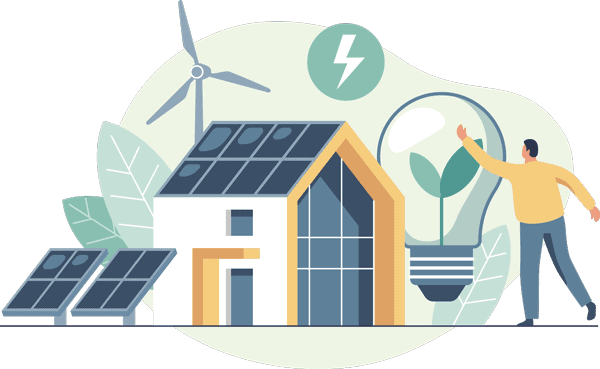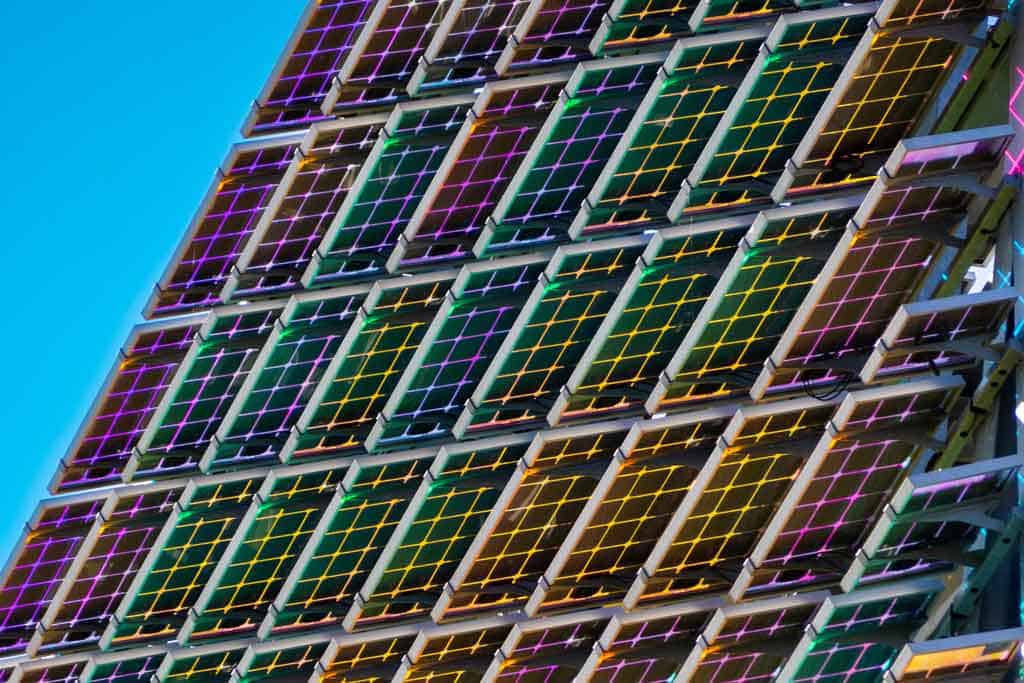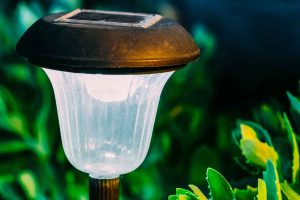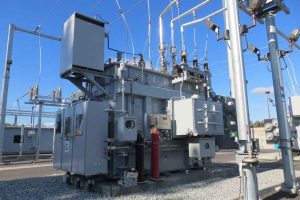The best solar lights for home are one of the most popular ways to make your home more energy-efficient and eco-friendly. They’re easy to set up, and you don’t have to worry about having an electrical outlet nearby or running wires from your house.
You can install them almost anywhere in your yard or garden, including on decks and patios. They’re also easy to move if you decide to move them somewhere else later. So if you’re looking for the best solar lights for home, read on as we tell you how to choose the best ones.
How And Where Do You Want To Use Your Solar Lights?
To choose the best solar lights for home, you first need to consider where and how you plan to use them. The best way to do this is by considering things like:
- Where will the light be placed? Will it be in a sunny backyard or a shady garage? Do you need a light that can withstand rain?
- When will the light be used? Will it be on during different times of the year than others, for example, winter vs. summer? If so, which season(s) need more sunlight?
- How much sunlight do they require per day? Do they have their power source (battery) or rely on solar energy alone?
The answers to these questions will provide the foundation for your solar lighting purchase. From there, you can better understand everything from the size of the light to its brightness and design.
Why Solar Lights Are Great For Your Home
Best solar lights for homes are one of the easiest ways to reduce your carbon footprint. They run on solar power, so you never need to worry about electricity bills or cables. They’re also easy to install, with no wiring necessary—you can stick them in the ground or hang them from trees.
The best part is that they’re affordable and simple enough for anyone to use: all you need is an outlet (or a few minutes), and they’ll be ready to go.
These lights are great for outdoor spaces and perfect for parties and other events.
They’re also an excellent way to reduce your carbon footprint—so whether you’re trying to save the planet or just looking for something fun to do on a Friday night, solar lights are a great option.
Tips for choosing the right solar lights
- Consider the size, style, and color of solar lights
- Look for solar lights that are bright enough to light up your walkways or garden
- Look for solar lights that are durable and weatherproof
- Look for solar lights that have a long lifespan
- Look for solar lights that are easy to install and maintain. Look for solar lights that are easy to use and operate. Look for solar lights that have a beautiful design, style, and color.
- Look for solar lights that are bright enough to light up your walkways or garden.
- Look for solar lights that are durable and weatherproof. Look for solar lights that have a long lifespan.
- Look for solar lights that are easy to install and maintain
Different Types Of Solar Lights
The first thing to consider when shopping for solar lights is the type of light you want.
- Shapes,
- Sizes
- Colors vary widely.
Some solar lights tend to be used outdoors, while others are intended for indoor use. If you only need a small amount of light in one area, such as around your front door or under your backyard deck.
Consider using a single solar light on a stake instead of purchasing several more expensive fixtures that may not be necessary for just one area of your yard or home.
Suppose you have an extensive outdoor space that requires lighting but doesn’t get direct sunlight during most of the day trees surrounding your house.
It makes sense to invest in larger fixtures with multiple LED bulbs so they’ll stay lit longer after sunset than smaller ones without additional illumination sources like streetlights nearby.
Discover Why Green Energy Is Important For Your Home
Learn about the benefits of solar energy and how it can save you money on your energy bill. Schedule a free consultation with us, and we’ll help you find the right solar system for your home.

Look for solar lights that are easy to install and maintain. Solar lights are also great for safety. If you have kids or pets who might wander into the yard at night, solar lights will help keep them safe. They can’t be turned off or tampered with, so they’ll always be on guard to ensure your family’s safety.
How To Install Solar Lights
The installation process for solar lights is quite simple, and most people can do it themselves. If you’re comfortable with basic household repairs, you should find installing your solar lights to be a breeze.
To install your best solar lights for home, first determine where you want them to go and then decide if they need to hang on something or not. If they don’t need to be mounted on something, lay them out in any pattern that looks good to you. If they do need to be mounted somewhere, follow these steps:
- Measure the height at which the light will hang from above ground level (AGL). This should probably be around 6 feet AGL. More than that may block too much sunlight from hitting anything below, less may make them too hard to see until dark falls outside later in the summer months after dark.
- If you’re looking for something more decorative than functional, solar garden lights are available that won’t provide any light but will look great in your yard.
These can be placed anywhere, but they aren’t as bright or powerful as other solar lights because they don’t have batteries and must rely solely on the sun’s energy to power them up each night before dusk.
How To Get The Most Out Of Your Solar Lights
Solar lights are a great way to save energy and money, but they can be tricky to use. If you’re looking for tips on how to get the most out of your solar lights, here’s what we recommend:
- Use them at night. The best time for best solar lights for home
- is during the evening when it’s dark outside. This will ensure that they charge up correctly and give off enough light so that people can see where they’re going while walking around your property at night.
- You’ll want to turn them on during dusk or before sunset so that they have enough sunlight available when darkness hits later in the evening.
- Pick bright colors. Most solar lights come with various colors and styles available—and since these are inexpensive additions, they don’t require wiring or installation work besides putting them into position (which takes just seconds).
- Brighten up your landscaping while saving energy by selecting an assortment of fun colors and shapes like stars or owls—or even choose something more neutral, like white LEDs, if you prefer something less showy but still effective.

Place the solar panel where you want it to go. This is usually on the ground and facing up towards the sun so that it can absorb rays as possible. You may need someone to help hold it steady while you attach it to something or mount it on a wall.
Start With The Right Fixtures.
- Determine what kind of fixtures you need. Many types of solar lights and fixtures are available, so do your research before deciding on a specific type.
- Look for weatherproof materials. Solar lights are generally meant for outdoor use and should be made from materials that can withstand the elements, such as rain or snow. If you’re placing them in an area that receives heavy snowfall every year, it may be worth investing in more expensive fixtures with thicker glass or metal parts to increase their durability.
- Look for wide-angle illumination options
This is especially important if you want to illuminate walkways around your house because it will allow them to light up further than just one room at a time when walking through those areas during nighttime (such as when leaving work.
An excellent way to test this feature would be by placing a couple of pieces down somewhere else where they won’t get disturbed by people walking past them often.
Then try walking in different directions while having both eyes open while looking towards all orders, so they don’t miss anything important. This method works best when done outside during daylight hours since it’s hard sometimes finding bright enough spots indoors without turning off lights first.
The best solar lights for home to get the most out of your solar lights is by using them at night. The best time for solar lights is during the evening when it’s dark outside. This will ensure that they charge up correctly and give off enough light so that people can see where they’re going while walking around your property at night.
What Are Solar Lights?
Solar lights are designed to be powered by solar energy. They help illuminate outdoor areas and can be used in gardens, driveways, pathways, and walkways.

The best solar lights for home are a great way to light up your garden without worrying about running wires or spending money on electricity. Solar garden lights are a great choice if you’re looking for an easy way to improve the look of your home or garden.
Solar garden lights are easy to install and a great way to add stylish lighting to your outdoor space. They’re also durable, so you don’t have to worry about them getting damaged by the elements or knocked over by pets or children.
Think About Solar Charging Capacity
The charging capacity of a solar light will depend on the size of its solar panel. The larger the solar panel, the more energy it can store, which means it will last longer and charge faster.
If you have a 300-watt system which is quite large, you’ll get about 10 hours of use on a full charge. If your system has only half that capacity 150 watts then it will only run for 5 hours with each complete control. That’s still pretty good.
But if you have 60-watt panels instead? Then they won’t even keep up with your needs; they’ll probably die after just one or two days without being recharged by sunlight.
This will also help you to determine if the lights are strong enough for your needs. Make sure they’re easy to install: If you plan on installing solar security lights around your property, they must come with easy-to-follow instructions and parts that can be assembled quickly by one person without much effort.
Don’t Forget About Color.
It’s easy to overlook color when shopping for the best solar lights for home. But, just like choosing suitable shapes and sizes, you’ll want to be sure that your light fixtures match the style and decor of your home.

Moreover, because most solar lights operate at night when they’re not particularly visible and may be painted in dark colors, it can be tempting to go with whatever looks good during the day.
So, remember: more oversized solar panels mean more extended use per charge. Solar lights are a great way to add fun and style to your outdoor space. But if you want these lights to last more than a couple of months, there are some things you should keep in mind.
You’re trying to enjoy the ambiance they create. And finally, make sure that your solar panel is large enough for its intended purpose—smaller panels aren’t going to charge small batteries as quickly or efficiently as larger ones will.
Consider Motion Sensor And Timer Controls.
Motion sensor lights are great for security since the light turns on only when someone is nearby. You can also use them to create a custom lighting schedule that makes sense for your home and its occupants.
- Set timers or motion sensors so that the lights will turn on when it gets dark and then fade into darkness as you fall asleep, but never burn all night.
- Many solar lights are designed to differentiate between weatherproof and waterproof indoors. You must read product descriptions carefully before purchasing if you’re looking for something that can withstand rain or other types of precipitation.
- If you want to use the best solar lights for home in the garden or patio, ensure they’re waterproof. This can be important if the weather changes suddenly or if you live in an area with frequent precipitation.
Choose Solar Lights That Will Work For Your Home And Your Lifestyle
Before you start shopping, it’s essential to think about your needs and lifestyle. Do you want the best solar lights for homes that are easy to install? Does the location require them to be hard to reach or get?
Thinking about these things will help narrow down your options and make shopping for the perfect solar light easier.
You can also set your lights to turn off automatically, which is a great way to save money. If you go out in the evening and forget to turn off all of the lights, be sure to use timers or motion-activated sensors so that they don’t stay on all night.
Conclusion
You’re ready to take the plunge and start using the best solar lights for home. You’ve got the right fixtures for them, and you know how to install them. But how do you get the most out of your solar lights? That’s where this post comes in. We hope our tips will help you ensure your home has a little extra glow—even during those dark winter months.





